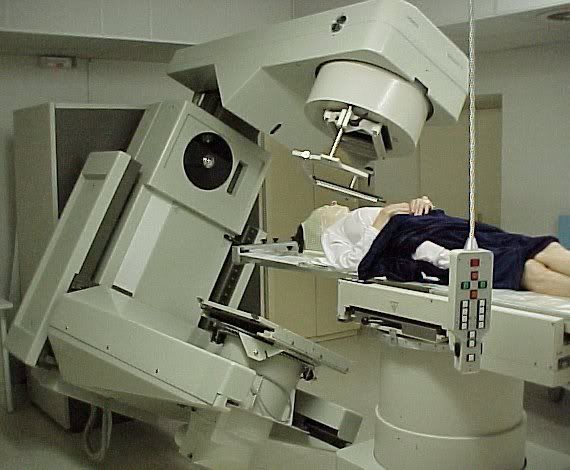Recognition of Co-Occurring Medical Conditions Among Patients With Serious Mental Illness.
There is an increased prevalence of co-occurring general medical conditions among individuals with serious mental illness (SMI), notably schizophrenia and bipolar disorder, compared with the general population. Patients with SMI are especially burdened by cardiovascular disease, diabetes, and pulmonary conditions. The increased risk of co-occurring medical conditions may be attributed to unhealthy lifestyles and medication side effects in patients with SMI, and such conditions may contribute to increased costs of care and mortality.
Moreover, many patients with SMI do not receive adequate care for general medical conditions, and in particular for cardiovascular disease and diabetes. A number of underlying determinants of potential disparities in the quality of general medical care in patients with SMI have been suggested, including poor access to general medical providers, time constraints limiting mental health specialists' capacities to treat co-occurring general medical conditions, and lack of familiarity and comfort general medical providers have with treating SMI patients.
The extent to which patients with SMI are aware of their medical treatment needs has not been explored. Self-awareness of one's psychiatric condition has been associated with greater treatment engagement, response, and ultimately outcomes in patients with SMI. Recognition of need for care is understood to be a critical element of the health care process for all services needs, affecting care seeking and treatment maintenance behaviors. As for all patients, individuals with SMI need to be aware of their medical conditions to facilitate adequate medical treatment and follow-up. Patients who are less aware that they have a co-occurring medical condition may be less likely to engage in their care, which can further inhibit treatment response and lead to adverse outcomes. Therefore, in this study, we assessed differential awareness of medical conditions by evaluating whether, among patients whose VA records in the prior 3 years included diagnoses of a particular condition, patients with SMI were less likely to report having been told by their doctor that they had that condition.
DISCUSSION
This study evaluated whether patients with SMI differed from non-SMI patients in their awareness of specific co-occurring conditions. We found that for seven of the 11 conditions, patients with SMI were less likely to report having been told that they had that condition. These conditions were also highly prevalent in our sample, and many, notably cardiovascular disease and diabetes, have also been associated with adverse outcomes in previous studies of patients with SMI.
The lack of awareness of co-occurring conditions among patients with SMI was especially striking, given that patients were asked to self-report lifetime conditions, while data on these same conditions were ascertained for both inpatient and outpatient VA administrative data up to 3 years prior to the survey (i.e., beginning of calendar year 1997). Perhaps patients with SMI are less knowledgeable about their medical problems. Alternatively, their providers may not be informing them of these conditions. In addition, patients may have failed to recall these conditions, which in itself may relate to inadequate care.
Lack of awareness of co-occurring conditions may preclude appropriate and timely care. Our results suggest that SMI patients are less aware of medical conditions that have been recorded by their providers. In contrast, previous research has suggested that most dually diagnosed patients (e.g., SMI with co-occurring substance use disorders) were aware of their substance use problems, especially if the substance use disorder was severe. Most VA patients with SMI receive their care in VA mental health specialty settings, and due to the physical and professional separation of physical and mental health care, providers may often refer medical problems to a separate general medical provider. Hence, the reasons for the lack of awareness of medical conditions may also be attributed to the possibility that medical conditions receive less attention than substance use disorders in mental health specialty settings. Mental health providers may lack the time or resources to assess the patients' medical conditions, especially when psychiatric episodes require more immediate attention. In one study, co-occurring medical conditions were undiagnosed in 67% of patients with SMI. Additional research in general medical populations suggests that patients with more than one chronic condition are often shortchanged in the treatment of other competing conditions when the most serious condition takes precedence in treatment settings.
The strengths of this study include a large national sample of patients with and without SMI, as well as comprehensive information on co-occurring conditions and patient sociodemographic factors. However, there are limitations to this study that warrant consideration. First, VA administrative (electronic medical record) data may not have captured all of the medical visits made by the patients. However, most of veterans with SMI (i.e., bipolar disorder) receive their care through the VA given the generous pharmaceutical benefits offered by the VA and the fact that most of these patients are disenfranchised, often precluding them from attaining private behavioral health insurance. In addition, given the relatively few number of women and racial/ethnic minorities other than African-Americans (e.g., Hispanics) and the fact that the VA is a closed healthcare system, the study may have limited generalizability. Understanding potential differences in recognition of conditions among different racial/ethnic minority groups with SMI is an important focus for further study. Still, it should be noted that individuals with SMI often receive care from publicly funded health care providers (e.g., VA, Medicaid). Thus, the VA patient population may constitute a disproportionately greater number of patients with SMI in the United States than would be found in the general patient population.
CONCLUSION
Overall, our results suggest that SMI compared with non-SMI patients are less likely to be aware of their co-occurring general medical conditions, especially chronic conditions. Since these conditions are also prevalent in SMI patients, greater efforts are needed to inform patients of their co-occurring conditions to facilitate adequate treatment. Because the quality of general medical care has been demonstrated to be suboptimal for patients with SMI, greater efforts are also needed to integrate medical and psychiatric services better for these patients, which in turn can facilitate their awareness of medical conditions. Greater efforts are also needed to empower patients with SMI to become more knowledgeable about and engaged in medical care, such as encouraging more active care-seeking, provider communication, and self-management strategies for medical conditions.




1 Comments:
Malibu Horizon offers a drug and alcohol treatment program that uses an innovative medical model.
co-occurring disorder
Post a Comment
<< Home